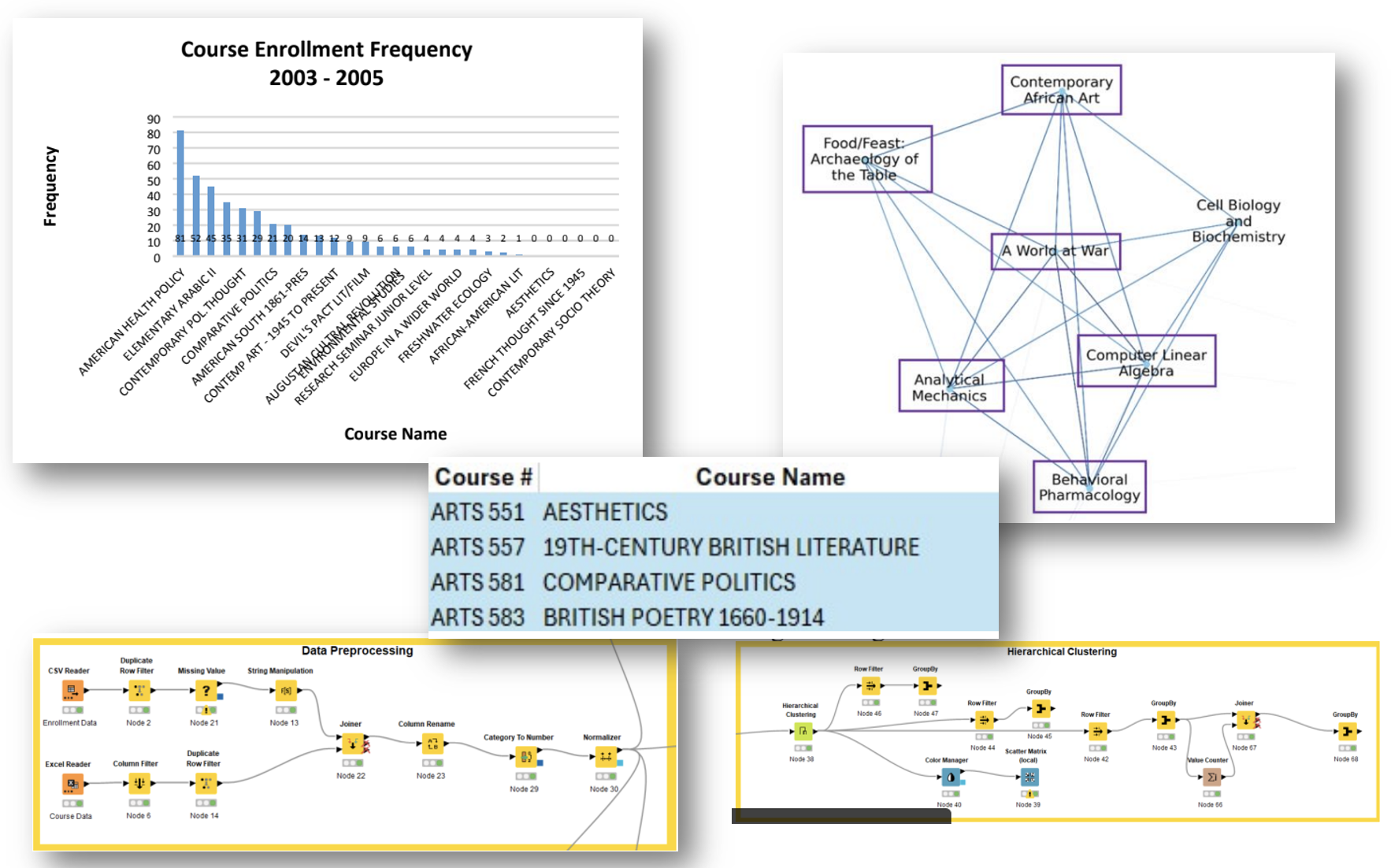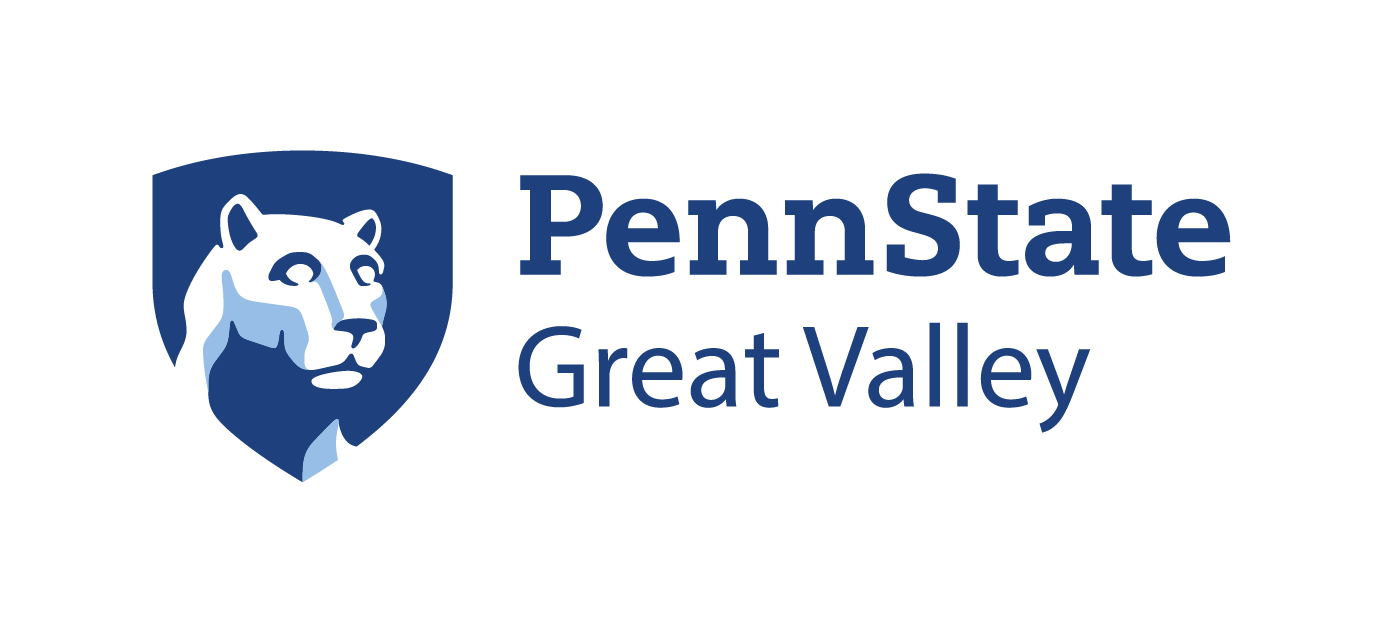KNIME’s Educators Alliance collaborates with educators to run student challenges and bring gamification into teaching data science. The challenges take the form of a project, executed individually or in teams, and the best solutions are recognized by awards. Rooted in real-world data, the challenges foster collaboration and constructive competitiveness between learners. This gamification approach to learning helps beat the content forgetting curve, and equips learners with solid knowledge of data analytics – a skill that remains relevant even after they are done with their degrees.
Course Cluster Crusaders rise to the challenge
Data mining students of Professor Wenlei Bai from Penn State University (PSU) have completed their Course Cluster Crusade, a student challenge that produced six winning low-code data science solutions that propose university curriculum redesigns.

The goal of the challenge was to review and redesign the curriculum of a Bachelor in Fine Arts (BFA) program based on thorough data analytics. Drawing from data wrangling strategies to clustering and predictive analytics, students evaluated different ways to group electives into concentration areas and leveraged data insights to propose reductions in the number of required credit hours and offered electives.
From guest lecture kick-off to six winners
Professor Bai submitted a proposal for a student challenge early in 2024. After its acceptance, KNIME kicked off the collaboration with guest lectures that eased his students into analytics and data science.
The students worked individually, and by the beginning of May turned in their solutions. In their reports, the students described their hypotheses and backed their findings with statistics and visualizations.
Professor Bai evaluated all solutions, paying special attention to their appropriateness and experimental correctness, and at the end two students placed first: Benjamin Arnosti and Harsh Patel; two placed second: Nathaniel Sayler and Scott Gniazdowski; and two placed third: Dianne Naughton and Tyler Jensen.
Solutions propose new elective offerings, course recommendations, curriculum redesign, and more
The top solutions proposed by the students were creative and technically diverse.
- Benjamin Arnosti (first place) used data preprocessing and association rule mining techniques to identify courses with significant engagement, and then leveraged this information to propose new concentration areas and elective offerings.
- Harsh Patel (first place) examined enrollment trends and clusters within elective preferences to provide BFA students with a more customized and effective learning path.
- Nathaniel Sayler (second place) used rule mining techniques to analyze historic course offerings and attendance, and then recommended future course offerings based on data insights.
- Scott Gniazdowski (second place) explored clustering techniques to provide course recommendations for the BFA degree.
- Tyler Jensen (third place) also examined rule mining techniques to make recommendations for course offerings and groupings of newly implemented concentrations.
- Dianne Naughton (third place) combined data visualization, rule mining, and clustering techniques to validate the need for and propose a curriculum redesign.

Student Dianne Naughton says“[I] very much enjoyed [KNIME’s] presentation [on statistics], and [...] thank [KNIME] very much for sponsoring this competition.”
In this spirit, we would like to congratulate all students who participated in the challenge, and thank Professor Bai for the collaboration. The Course Cluster Crusade challenge was a great opportunity for students to learn about low-code tools and hone their analytics skills.
We are looking forward to further collaborating with Penn State University in the future!
About PSU

Penn State Great Valley School of Graduate Professional Studies extends the resources and reputation of one of the nation’s leading research universities to the Greater Philadelphia area. Founded in 1963, we offer master’s degrees and graduate certificates in business, big data, engineering, and technology – all taught in state-of-the-art facilities. Our evening and hybrid courses are offered in a flexible, step-in step-out format to meet the demands of work, family, and life in general. Our outstanding faculty members teach valuable practical skills, share cutting-edge knowledge, and work with corporate, government, and educational neighbors to address real-world problems and enhance employee performance. We also offer customized corporate training and comprehensive conference services.
